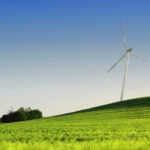In a context in which companies are increasingly aware of the importance of sustainability, green bonds have been established as a financing alternative. 2021 ended with a record-high volume of €904 billion of environmental, social and governance (ESG) bonds issued globally. Through mid-November of 2022, Bloomberg New Energy Finance reported a total of €701 billion.

A green bond is any type of bond whose funds are applied exclusively to finance or refinance, in part or in full, eligible green projects, whether they be new and/or already existing. The bonds should also be aligned with the Green Bond Principles (GBP), which promote integrity in the green bond market through guidelines that recommend transparency, disclosure and reporting.
As established in the Green Bond Principles and explained in this year’s brochure, a bond can obtain green certification if its funds are applied to one or more of the following categories. The list is indicative and there may be more categories:
- Renewable energy: including production, transmission, appliances and products.
- Energy efficiency, such as in new and refurbished buildings, energy storage, district heating, smart grids, appliances and products.
- Pollution prevention and control: waste water treatment, reduction of air emissions, greenhouse gas control, soil remediation, waste prevention, waste reduction, waste recycling and energy/emission-efficient waste to energy, value added products from waste and remanufacturing, and associated environmental monitoring.
- Environmentally sustainable management of living natural resources and land use: environmentally sustainable agriculture; environmentally sustainable animal husbandry; climate smart farm inputs such as biological crop protection or drip-irrigation; environmentally sustainable fishery and aquaculture; environmentally-sustainable forestry, including afforestation or reforestation, and preservation or restoration of natural landscapes.
- Terrestrial and aquatic biodiversity conservation, including the protection of coastal, marine and watershed environments.
- Clean transportation, such as electric, hybrid, public, rail, nonmotorised, multi-modal transportation, infrastructure for clean energy vehicles and reduction of harmful emissions.
- Sustainable water and wastewater management, including sustainable infrastructure for clean and/or drinking water, wastewater treatment, sustainable urban drainage systems and river training and other forms of flooding mitigation.
- Climate change adaptation, including information support systems, such as climate observation and early warning systems.
- Eco-efficient and/or circular economy adapted products, production technologies and processes, such as development and introduction of environmentally friendlier products, with an eco-label or environmental certification, resource-efficient packaging and distribution.
- Green buildings which meet regional, national or internationally recognised standards or certifications.

BBVA, a leader in sustainable finance
As a sign of its responsibility in the fight against climate change, in 2018, BBVA approved its Pledge 2025 in which it committed to mobilize a total of €100 billion in green financing, sustainable infrastructure, social entrepreneurship and financial inclusion. Three years later, the bank increased its goal to €200 billion. At the end of September 2022 it had reached a total of around €124 billion. On October 12, 2022, BBVA Chair Carlos Torres Vila announced that the target was being raised once again, to €300 billion.
BBVA has continued to play a significant role in developing the ESG bond market - in Europe and in the U.S., Latin America and Asia. In the first half of 2022, BBVA led the most issuances of green, social and sustainable bonds, as well as bonds tied to environmental indicators in the U.S., Mexico, South America, Asia and Europe, including Spain. This represents a total volume of €4.40 billion disintermediated by BBVA from leading 46 ESG bonds.
In the first six months of 2022, BBVA supported clients such as Iberdrola, Acciona, Enel, Telefónica, Volkswagen, the Republic of Colombia, Carrefour and Commerzbank, among others.